Vaser-Liposuction in South Africa
Search and Compare the Best Clinics and Doctors at the Lowest Prices for Vaser-Liposuction in South Africa
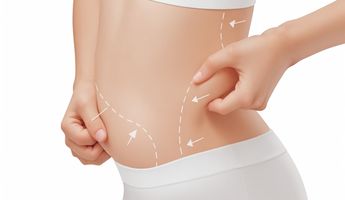
Find the best clinics for Vaser-Liposuction in South Africa
No pricing info available
Thailand offers the best prices Worldwide
Price: $ 236
From 36 verified reviews
Kim Adams, 30 March 2020
Overall I had a good experience.
From 38 verified reviews
Nompumelelo Madliwa, 19 April 2020
I had such a wonderful experience there with Dr Thomas, I had a skin drafting done it was such a smooth process I am healing very well and had a great stay there, Thank you so much
Dr Dawid Potgieter, located in Syfred Douglas St, Cape Town, South Africa offers patients Vaser-Liposuction procedures among its total of 90 available procedures, across 1 different specialties. Currently, there's no pricing information for Vaser-Liposuction procedures at Dr Dawid Potgieter, as all prices are available on request only. All procedures and treatments are undertaken by the lead specialist at the Hospital, and they have multiple recognized accreditations, including: HPCSA - Health Professions Council of South AfricaDepartment of Health, Western CapeFCS(SA) - Fellowship of the College of Surgeons of South Africa
- Home
- South Africa
Compare Before & After Photos of _procedure_photos.phpVaser-Liposuction
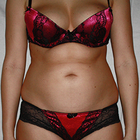
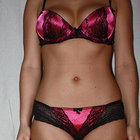
Front view
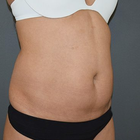

Half-side view
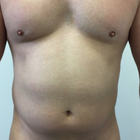
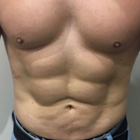
Front view
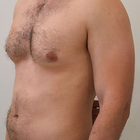
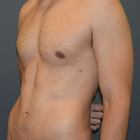
Half-side view
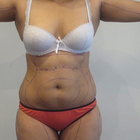

Front view
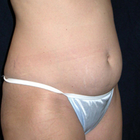
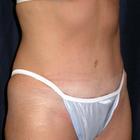
Half-side view
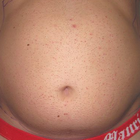
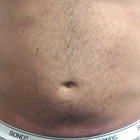
Front view
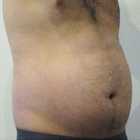
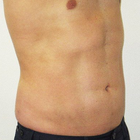
Half-side view
WHY US?
At Medijump, we're making medical easy. You can search, compare, discuss, and book your medical all in one place. We open the door to the best medical providers worldwide, saving you time and energy along the way, and it's all for FREE, no hidden fees, and no price markups guaranteed. So what are you waiting for?

Free

Best Price

Widest Selection

Risk-Free
What you need to know about Vaser-Liposuction in South Africa
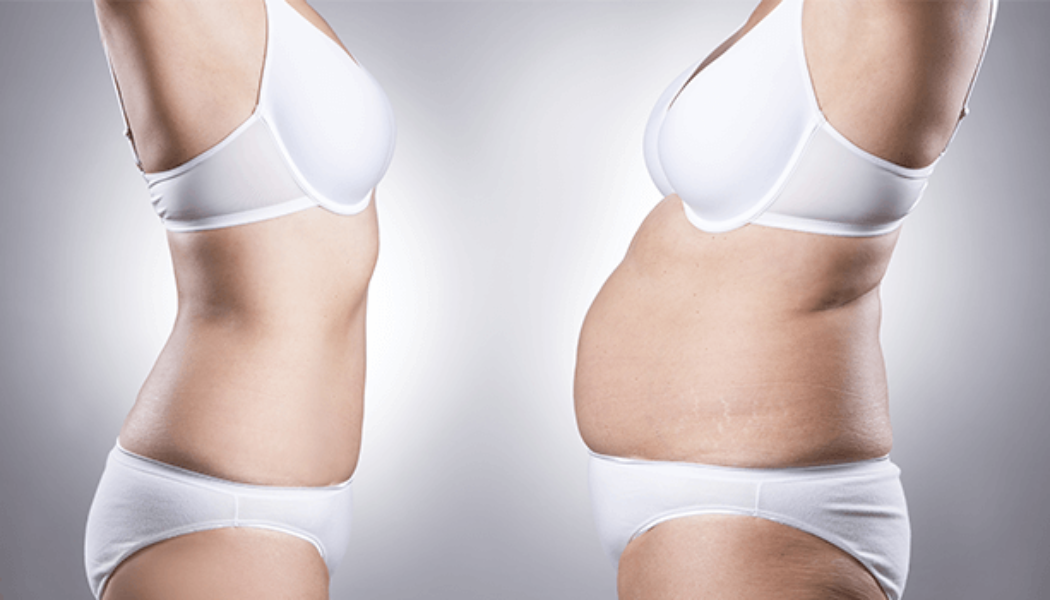
Vaser liposuction, also referred to as Vaser Lipo for short, is a type of cosmetic treatment performed to change the contours and shape of the body by eliminating stubborn fat deposits. Vaser stands for Vibration Amplification of Sound Energy Resonance, which is a specialized ultrasound technology that sends out ultrasonic frequency waves to break down fat cells from desired areas of the patient. Once the fat cells have been broken down, the surgeon can perform the liposuction part of the procedure, which is removing excess fat through a suction process.
Vaser Liposuction has become increasingly popular because the specialized ultrasound technology increases the accuracy of the procedure and minimizes damage to the surrounding tissue, which results in less bruising and pain compared to traditional liposuction. Also, since the fat cells are specifically targeted, the result is much more sculpted and smoother than traditional liposuction. Vaser Liposuction can be performed in many areas of the body, including the abdomen, back, arms, flanks, neck, thighs, calves, ankles, hips, buttocks, and under the chin.
Like other liposuction techniques, it is important to note that Vaser Liposuction is not a weight loss solution. The procedure is intended to contour the body, reduce stubborn excess fat, and reveal muscle tone underneath the fat. You must already be healthy and within your target weight before you consider undergoing this procedure. It
What does a Vaser-Liposuction Procedure Involve?
To begin the procedure, your surgeon injects a saline-anesthetic solution mixture or tumescent solution directly into treatment areas. This solution is used to expand the fat compartment and tightens small blood vessels. It also helps to start the breakdown of the fat cells and protects other tissues. Tiny incisions are then created in the targeted area to insert the Vaser ultrasonic probes. The vibration from the ultrasound will break down the fat. Once the fat is broken down, your surgeon will use a small cannula to remove the fat cells and liquid. Because the fat is broken down with the ultrasound, the fat extraction with the liposuction cannula is easier and less traumatic than in traditional liposuction.
Vaser Liposuction can be carried out under local anesthetic with minimal oral sedation, general anesthetic, or intravenous sedation. If the procedure is performed under local anesthesia, you may feel slight pinching and pressure when the liposuction part is performed.
How Long Should I Stay in South Africa for a Vaser-Liposuction Procedure?
Vaser Liposuction takes around 2 to 5 hours to complete. After the procedure, you may have to stay in the hospital overnight if general anesthesia is used. However, if local anesthesia is used you should be able to leave the hospital on the same day once the effects of the anesthetic wear off.
Since your surgeon will schedule follow-up appointments to monitor your healing and remove your stitches, you may need to stay in South Africa for several days following the surgery. The recommended length of stay in the country is about three to seven days.
What's the Recovery Time for Vaser-Liposuction Procedures in South Africa?
The recovery period of Vaser Liposuction is typically short, but it depends on your general health and treated area. In general, you should be able to return to work and most of your daily activities within two to seven days. You also need to refrain from exercise or other forms of strenuous activities for about 2 weeks. However, if you have gone through a more extensive procedure, you need to prepare for a longer recovery period. The overall recovery time may take up to 24 days following the Vaser Liposuction.
What sort of Aftercare is Required for Vaser-Liposuction Procedures in South Africa?
Your surgeon will give you specific post-operative instruction. You must follow all the instructions closely to help you heal quickly and smoothly, as well as to avoid any possible complications. It is important that you rest as much as possible during the first few days. You may feel some pain and discomfort, but your surgeon will prescribe pain medication to help manage the discomfort.
It is important that you maintain a healthy lifestyle by following a healthy diet and exercising regularly to keep the results of your Vaser Liposuction. While mild weight fluctuations will go unnoticed, significant weight gain will become noticeable. Therefore, have a well-balanced diet, avoid too many sweets, and stay away from fast food.
What's the Success Rate of Vaser-Liposuction Procedures in South Africa?
Approximately 90% of women and men who have gone through Vaser Liposuction reported having achieved their target. The results of the procedure may be seen immediately, but the most significant improvement will appear in 6 to 8 weeks following the procedure. It may take about 6 months to achieve the final results.
Again, your new look will only remain if you take care of yourself. The results will not be permanent if you do not stick to an active and healthy lifestyle. The procedure is designed to give you a little boost and to get rid of persistent fat that you cannot remove easily through a healthy diet and exercise.
While risks and side effects of Vaser Liposuction rarely occur, it is best that you are aware of them. The risks and side effects are:
- The ultrasound device may burn your skin and tissues.
- Skin discolorations.
- Skin from the affected area may be wavy, dimpled, or saggy.
- The formation of scar tissue.
- Swelling.
- The remaining fat cells can expand.
- To further minimize the risks, make sure you choose a skilled and experienced surgeon.
Are there Alternatives to Vaser-Liposuction Procedures in South Africa?
If you do not want to undergo Vaser Liposuction or you are not an ideal candidate for the procedure, you can opt for the nonsurgical alternatives:
- CoolSculpting works by freezing stubborn fat cells in certain areas of the body. The freezing temperature can destroy fat cells permanently. This type of procedure can remove fat cells from certain areas of the body, particularly belly fat, back fat, love handles, arm fat, or a double chin.
- Sculpsure uses a laser beam to heat fat cells until they become irreversibly damaged. This procedure is very quick and requires almost no downtime.
Whilst the information presented here has been accurately sourced and verified by a medical professional for its accuracy, it is still advised to consult with your doctor before pursuing a medical treatment at one of the listed medical providers
No Time?
Tell us what you're looking for and we'll reachout to the top clinics all at once
Enquire Now

Popular Procedures in South Africa
Prices Start From $111

Prices Start From $120

Prices Start From $931

Prices Start From $76

Recommended Medical Centers in South Africa for Vaser-Liposuction

- Interpreter services
- Translation service
- Religious facilities
- Medical records transfer
- Medical travel insurance
- Health insurance coordination
- TV in the room
- Safe in the room
- Phone in the room
- Private rooms for patients available

- Interpreter services
- Translation service
- Religious facilities
- Medical records transfer
- Medical travel insurance
- Health insurance coordination
- TV in the room
- Safe in the room
- Phone in the room
- Private rooms for patients available

- Interpreter services
- Translation service
- Religious facilities
- Medical records transfer
- Medical travel insurance
- Health insurance coordination
- TV in the room
- Safe in the room
- Phone in the room
- Private rooms for patients available

- Interpreter services
- Translation service
- Religious facilities
- Medical records transfer
- Medical travel insurance
- Health insurance coordination
- TV in the room
- Safe in the room
- Phone in the room
- Private rooms for patients available

- Interpreter services
- Translation service
- Religious facilities
- Medical records transfer
- Medical travel insurance
- Health insurance coordination
- TV in the room
- Safe in the room
- Phone in the room
- Private rooms for patients available

- Interpreter services
- Translation service
- Religious facilities
- Medical records transfer
- Medical travel insurance
- Health insurance coordination
- TV in the room
- Safe in the room
- Phone in the room
- Private rooms for patients available

- Interpreter services
- Translation service
- Religious facilities
- Medical records transfer
- Medical travel insurance
- Health insurance coordination
- TV in the room
- Safe in the room
- Phone in the room
- Private rooms for patients available

- Interpreter services
- Translation service
- Religious facilities
- Medical records transfer
- Medical travel insurance
- Health insurance coordination
- TV in the room
- Safe in the room
- Phone in the room
- Private rooms for patients available

- Interpreter services
- Translation service
- Religious facilities
- Medical records transfer
- Medical travel insurance
- Health insurance coordination
- TV in the room
- Safe in the room
- Phone in the room
- Private rooms for patients available

- Interpreter services
- Translation service
- Religious facilities
- Medical records transfer
- Medical travel insurance
- Health insurance coordination
- TV in the room
- Safe in the room
- Phone in the room
- Private rooms for patients available
Vaser-Liposuction in and around South Africa
About South Africa
South Africa is home to some of the world's most luxurious private game reserves and lodges. Wildlife lovers come here from all corners of the globe in search of the "Big Five": lion, buffalo, leopard, rhino, and elephants. Coral reefs, shark dives, dragon-backed mountain ranges, white-water rafting, and golden beaches lapped by legendary surf breaks are some of South Africa's many other attractions. Traveling around this vast land and touring the vibrant cities, visitors can learn about the nation's turbulent history. Travelers coming to South Africa for medical treatments do so for cost savings, advanced medical technology, and the internationally qualified and skilled doctors. The country welcomes an ever-increasing number of medical tourists each year, many of which travel for Vaser-Liposuction procedures. Medical Tourists travel from all across the globe, particularly from African countries with an inferior healthcare system. Popular destinations include the capital city, Pretoria, neighboring Johannesburg, and the stunning Cape Town.
Popular Parts of South Africa
With more than 57 million inhabitants, South Africa is the world’s 24th most populous nation. It is a multiethnic society with a large variety of cultures, languages, and religions. Known for its exhilarating outdoor adventure, fascinating wildlife, magnificent landscapes, and opulent history makes South Africa a truly magical destination
- Cape Town is the oldest city and the legislative capital of South Africa. This pleasant city has a lot to offer as you can Hike the Table Mountain, take a wine tour, cruise to Robben Island, relax on beautiful beaches, visit District Six Museum, discover Kirstenbosch Botanical Gardens, and watch the Boulders Penguin Colony or shop in trendy markets.
- Johannesburg is the largest and the most populous city. It is changing rapidly into an ultra-modern metropolis. Other than being an urban city, it also boasts a rich history. Tourists can visit the Apartheid Museum to learn more about the country’s difficult past through exhibitions. Other museums such as MOAD and MuseuMAfriCA are also worth a visit to view the city’s art and history.
- Durban is a cosmopolitan city with sunny beaches and charming Afro-Indian culture. There are more Indian nationals residing in this city than any other country outside of India. It is the place to go if you want to see marine life. Visit uShaka Marine World where you can snorkel, dive, and interact with animals.
- Pretoria is a scenic city and you will find various historic buildings with astounding architecture such as the Voortrekker Monument, Union Buildings, and Church Square with its statue of Paul Kruger. Those who are looking for some outdoor activities can explore Pretoria National Botanical Garden and Rietvlei Nature Reserve for some wildlife viewing.
- Kruger National Park is one of the largest national parks and one of the most exciting safari destinations in the world. Here you can view all of Africa’s safari species such as Lion, Elephant, Rhino, Leopard, Buffalo, Hippo, and Giraffe along with more than 100 mammal species and 500 varieties of bird.
Weather and Climate in South Africa
South Africa’s climate is determined by its situation in the Southern Hemisphere’s subtropical zone and between the Atlantic and Indian Oceans. The country is a year-round destination thanks to its varying regional climates. May to September is the Dry Season with little to no rain. The days are mostly sunny, but it gets cold in the evenings and mornings. The average temperature during this season is around 14 °C with June to August as the coldest months. The wet season starts in October and ends in April. There will be occasional short rain showers in the afternoon. The average temperature during the wet season is around 20 °C, but it can also be as high as 35 °C, especially in December, January, and February.
Getting Around in South Africa
The main and the busiest airport in South Africa is the O.R. Tambo International Airport. The airport is located in Kempton Park, near Johannesburg and Pretoria. It serves as the primary domestic and international gateway to and from South Africa. The airport operates flights to other cities in South Africa as well as numerous major cities in the world including London, Singapore, Sydney, Abu Dhabi, and Atlanta. There are also two other major international airports: Cape Town International and King Shaka International. The inexpensive way to travel around the country is by flying with budget airlines such as FlySadair, Kalula.com, and Mango.
South Africa has an excellent infrastructure and is easy to navigate. However, if you wish to visit several cities, expect to have at least one long-distance trip. You can travel around by bus, train, or rental car. There are several long-distance bus companies you can choose, such as Intercape, Translux, and Greyhound. The buses are relatively affordable and safe. They are generally equipped with air-conditioning and an onboard toilet. For short-distance travel, Baz Bus is the best choice. A one-way ticket fare starts at around 500 ZAR.
Although trains are slow, they are less expensive than flights and more comfortable than buses. Shosholoza Meyl long-distance trains serve Cape Town, Johannesburg, Durban, Bloemfontein, and several other major cities. This train is very affordable with tickets costing as low as 400 ZAR for a sleeper train. If you’re looking for a more luxurious train, try the Blue Train which offers comfortable compartments, good food, and wine for around 18,300 ZAR.
Taxis are available to get around major cities. Tourists can hail one directly from the streets. However, since the taxi ranks are not common, it is best to call for one. The base fare can be different in every city, ranging between 11 ZAR to 20 ZAR.
Tourist Visas in South Africa
A valid visa is required if you wish to visit South Africa. Citizens of more than 60 countries can enter and stay for up to 90 days. Other countries not listed in the visa exemption agreement must apply and obtain a visa to the nearest South Africa embassy or consulate. All visitors must hold a passport valid for at least 30 days after the expiration of their intended visit, and the passport must have at least two unused pages.
Additional Information
- Local Currency: South African Rand (ZAR) is the official currency. 1 USD converts to 14 ZAR.
- Money & Payments: Tourists can find ATMs all around the country. Credit Cards are widely accepted. However, since South Africa has a reputation for scams, you should inform your bank about your travel plans to avoid declined transactions. It is also advisable to always bring some cash with you. Tipping is expected here and you can tip around 10% to 15% of the bill in restaurants and cafes and the standard tip in hotels is 10 to 20 ZAR.
- Local Language: There are 11 official languages in the country, including Zulu, Xhosa, Afrikaans, Northern Sotho, Tswana, Southern Sotho, Tsonga, Swazi, Venda, Southern Ndebele, and English. Zulu is the most widely spoken language.
- Local Culture and Religion: As a secular state, South Africa has a diverse religious population. Most of the population follows Christianity. Other religions such as the traditional African religion, Islam, Hinduism, and Judaism are also freely practiced.
- Public Holidays: The country has 12 public holidays such as New Year’s Day, Good Friday, Freedom Day, and Christmas Day.
Popular Searches
- Plastic Surgery in Thailand
- Dental Implants in Thailand
- Hair Transplant in Thailand
- Breast Augmentation Thailand
- Gastric Sleeve in Thailand
- Gender Reassignment Surgery in Thailand
- Laser Hair Removal in Bangkok
- Botox in Bangkok
- Dermatology in Bangkok
- Breast Augmentation in Bangkok
- Coolsculpting in Bangkok
- Veneers in Turkey
- Hair Transplant in Turkey
- Rhinoplasty in Turkey
- Stem Cell Therapy in Mexico
- Rhinoplasty in Mexico
- Liposuction in Mexico
- Coolsculpting in Tijuana
- Rhinoplasty in Korea
- Scar Removal in Korea
- Gastric Sleeve in Turkey
- Bone Marrow Transplant in India
- Invisalign in Malaysia
- Plastic Surgery in the Dominican Republic
- Tummy Tuck in the Dominican Republic
- Plastic and Cosmetic Surgery in Poland
- Rhinoplasty in Poland
- Hair Implant in Poland
- Dental Implants in Poland
- IVF in Turkey


